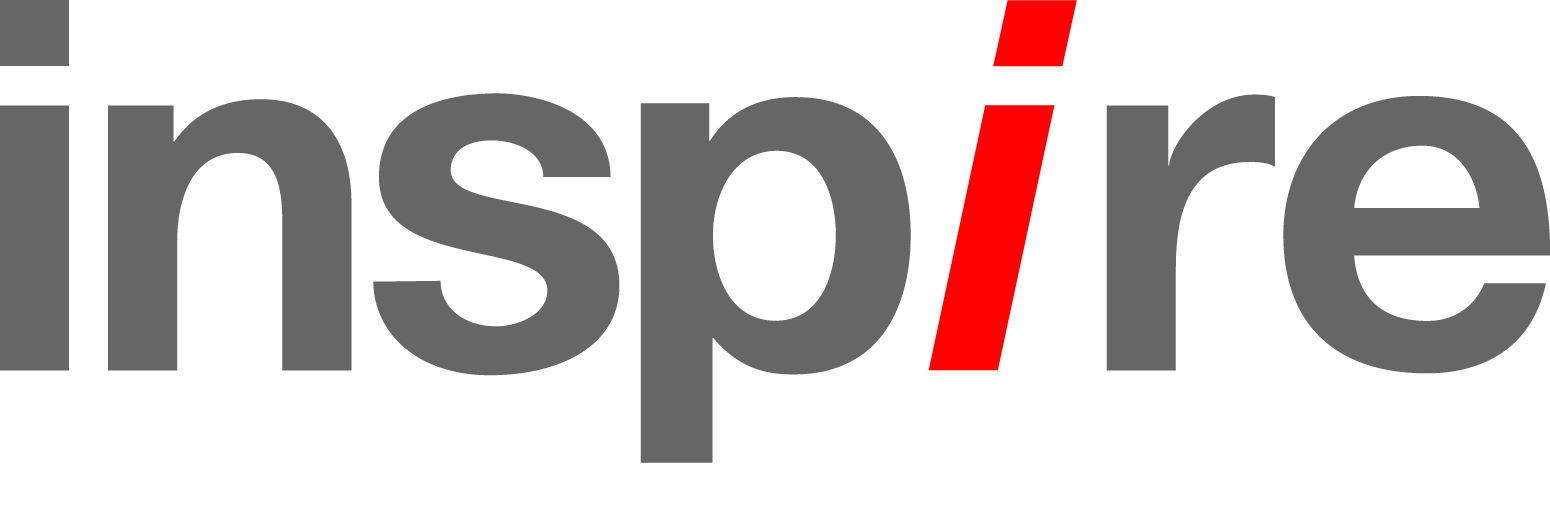Project Description
Special Interest Group Meeting: Advancing Precision in Additive Manufacturing
21st – 23rd September 2021, (Virtual)
Advancing Precision in Additive Manufacturing
21st – 23rd September 2021, (Virtual)
euspen’s Special Interest Group Meeting on Advancing Precision in Additive Manufacturing was planned to be held at Inspire AG in St Gallen, Switzerland. In light of the COVID-19 pandemic, it has been decided to deliver this meeting as a “virtual online web-meeting”, to ensure the participants remain safely connected.
This 8th in the series of joint Special Interest Group meeting between euspen and ASPE on Advancing Precision in Additive Manufacturing is crucial to putting additive manufacturing onto the factory floor. We are seeking papers in the following categories:
1. Dimensional accuracy and surface finish in additive manufacturing (AM)
- State of the art: What level of precision is achievable?
- Functional specifications for form and finish
- Prediction and modelling of dimensional errors and surface topography
- Developments in fabricating lattice structures with high integrity
- Diversity in scale of features: large-scale to micro-/nano-scale
2. Design for precision
- Design rules and tolerancing for AM
- Topology optimisation in the context of AM and achieving precision
- Novel designs for flexures and kinematic couplings
- Metallurgy and fatigue issues in high-cycle precision applications
- Design and tolerancing of lattice structures
3. Machine precision – process development and control
- In-situ process monitoring, e.g. melt zone temperature, powder bed
- In-process measurement of workpiece shape and topography
- Using artefacts to assess machine performance, round-robin testing
- Holistic views of the control system, process feedback, correction
- Machine learning to conquer the complex AM parameter space
- Machine learning with a focus on precision and uncertainty
4. Standards certification and training
- Certifying AM equipment capabilities and material properties
- Industrial demands for ASTM and ISO standards
5. Integrating AM into a holistic manufacturing process
- Cost-benefit trade-offs of using AM within a complex process chain
- Engineered partnerships between AM and secondary finishing
- Kinematic tooling or pallets for repeatable part handling
- Digitalisation of manufacturing
6. Metrology
- Surface topography measurements on rough as-built surfaces
- Dimensional metrology of internal features using computed tomography
- Multi-sensor approaches, data fusion and machine learning
- Complex form measurement, registration and fitting of point clouds
- Measurement of 3D lattice strut dimensional accuracy and integrity
- Characterisation of internal defects and voids
The local hosts and organising committee for the joint Special Interest Group meeting between euspen and ASPE on Advancing Precision in Additive Manufacturing are :- Dr Adriaan Spierings from inspire AG; Dr Anke Günther from Reishauer AG; Prof. Geoff McFarland from Renishaw plc; Prof. Richard Leach from University of Nottingham; and Dr John Taylor from University of North Carolina at Charlotte
The Additive Manufacturing meeting chair is Prof. Richard Leach from University of Nottingham and Dr John Taylor from University of North Carolina at Charlotte
This event is virtually supported by our local host:
Key Dates
23rd April 2021 : Online short abstract submission deadline
18th June 2021 : Online extended abstract submission deadline
9th July 2021 : Notification of presentation acceptance (oral/poster)
14th July 2021 : Delegate registration opens
Registration Fees
- €95+VAT – euspen Student Member
- €195+VAT – euspen Member
- €295+VAT – Non-euspen Member
- €375+VAT – Exhibitor
- €55+VAT – Tutorial
- €25 – Printed Proceedings
All speakers and presenters must register for the conference using the appropriate delegate fee.
Registration
The Special Interest Group meeting on Advancing Precision in Additive Manufacturing will take place as a virtual meeting.
Select Delegate Registration Form A if either of the following applies:
- You are a private individual based within the UK or Europe (i.e. your registration fee is not being paid by an organisation you are affiliated to)
- You are an organisation based within the UK
- You are representing a European company that is not VAT/IVA registered
Notes:
- This form will apply VAT according to your own Country (UK or European). Please note your VAT rate will be correctly applied once you have selected your country from the billing information screen.
- During busy periods it takes a little time for the form to load. Please be patient.
Select Delegate Registration Form B if either of the following applies:
- You are representing an organisation which is VAT registered in an EU country and you are able to provide your VAT/IVA registration number. The VAT/IVA number must be applied to your registration form
- You are representing a business outside Europe
If you wish to only attend the tutorial, please email info@euspen.eu with the following information: Name of Delegate attending the tutorial and the name of the tutorial you would like to attend. An invoice will be issued to your separately and we will add your information to the registration list.
Submit an abstract for Additive Manufacturing 2021
Announcement & Call for Abstracts
Come and join your international peers and maintain a leading edge on technology, customers, partners and suppliers. Access the greatest minds in Advancing Precision for Additive Manufacturing research and development. Share knowledge and information and stimulate debates.
Themes :-
- Dimensional accuracy and surface finish in additive manufacturing (AM)
- Design for precision
- Machine precision – process development and control
- Standards certification and training
- Integrating AM into a holistic manufacturing process
- Metrology
Submission of abstracts
Abstracts are expected to describe original work, previously unpublished and should indicate new and significant advances and their importance. Initially short abstracts between of around 300 words in length should be submitted online using the below links.
Following review of short abstracts, authors will be provided with instructions for submitting extended abstracts of between two and four A4 pages. On acceptance of extended abstracts, authors are notified of presentation mode (poster/oral). All papers accepted will also be indexed on to euspen’s Knowledge Base which is indexed via Google Scholar. The final decision on acceptance of all papers is made by the Editor and Scientific Committee of the SIG meeting.
The invitation to submit an abstract does not constitute an offer to pay travel, accommodation or registration costs associated with the conference. Similarly, no speaker fee is paid to successful participants. All speakers must register for the conference and transfer registration fee. In specific cases the organising committee reserves the right to deviate from the standard procedure.
Exhibitors

GrindoSonic® is a supplier of Non Destructive Testing (NDT) technology supplying laboratories (R&D) and production environment (Quality Control). We have developed a system that can work on 3 different axes:
- Materials characterization: E-, G- Modulus, Poisson calculation, Damping/Internal Friction
- Materials Evolution Measurement: Thermal Shock, Radiation, Fatigue, Corrosion, Frost/Defrost, Aging
- Quality Control: Elasticity, Cracks, Dimensions, Porosity, Brittleness, Internal Friction, Backing Quality, Structural Integrity, Internal Stress, Water Content, Crystallization. Every object that will resonate over itself will give its own signature for material characterization or Quality Control (resolution 1 ppm) and even at elevated temperature.
A simple, reliable and fast way to discriminate good from bad components. For more information visit: www.grindosonic.com
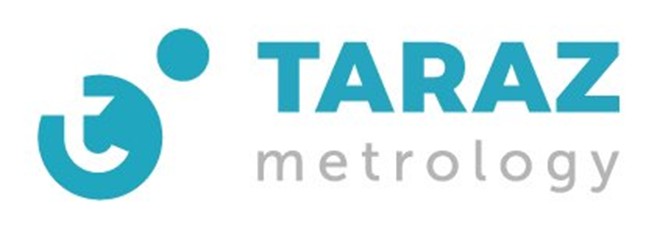
Company Vision – “We solve challenges for our customers and partner organisations, by turning research into products for non-contact coordinate and surface measurement.”
Taraz develop and build form and surface metrology solutions for additive manufacturing (AM) applications:
- Metrology for in-process monitoring and post-process inspection
- Optical technology driven by IRM (Information-Rich Metrology) software to deliver fast and accurate results for highly complex component geometries
IRM technology was developed within University of Nottingham – Manufacturing Metrology Team, specifically to address the challenges of delivering practical solutions for AM and similar high-value industry sectors.
For more information visit: www.taraz-metrology.com
Keynotes
We are delighted to bring together leading expertise globally to an open forum for focused presentations and discussions on additive manufacturing.
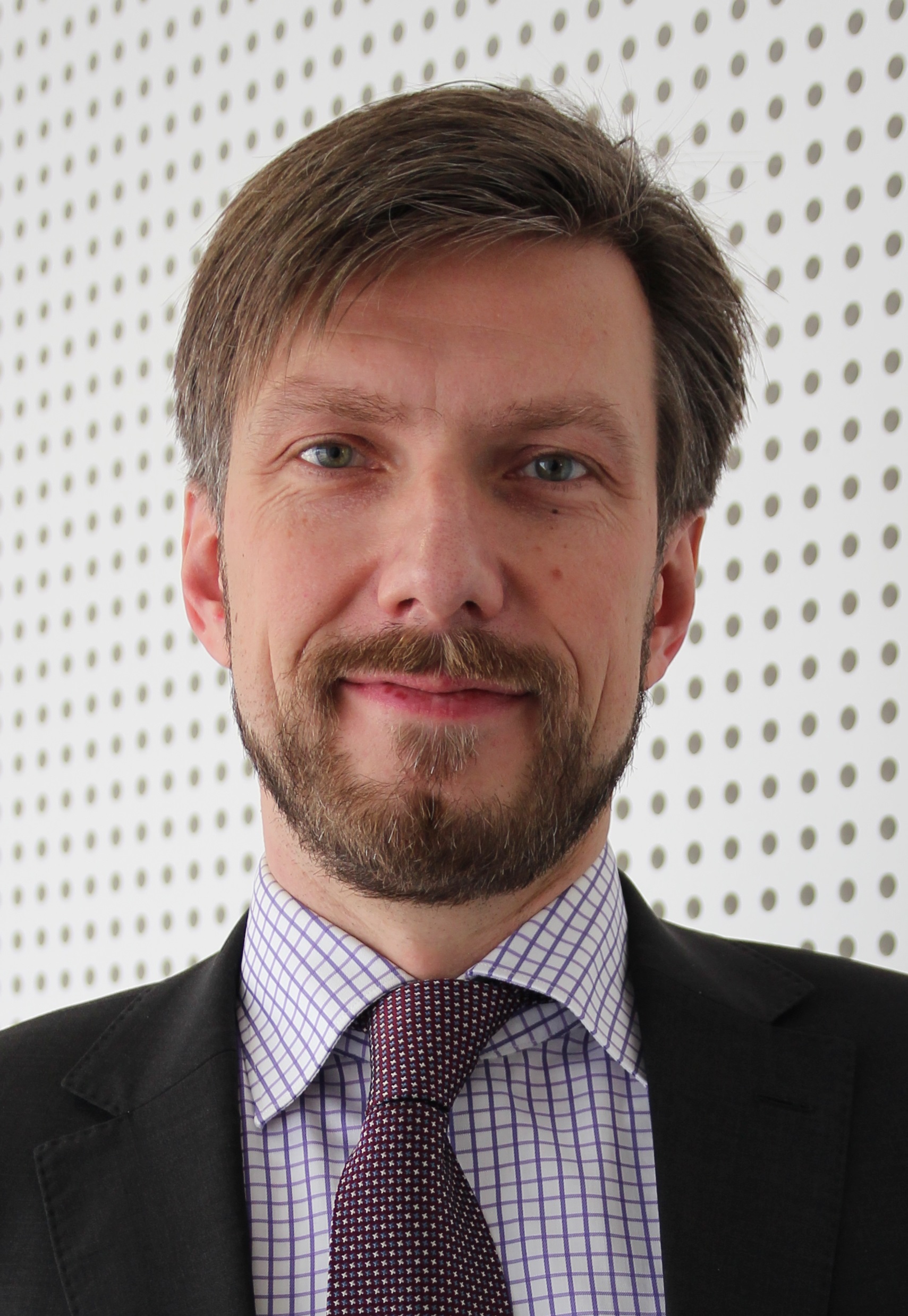
Dr.-Ing. Bernhard Mueller
Fraunhofer IWU, Dresden, DE
Next Generation Design for Additive Manufacturing and how the technologies need to adapt
Design for Additive Manufacturing (D4AM) has become popular, raising awareness that, for an industrial breakthrough it is crucial to make use of the design freedom that AM potentially provides to a maximum extent. Transformation and evolution of existing designs for conventional manufacturing to AM are bound to fail in providing economically viable success stories on the road towards AM industrialization. As of today, D4AM incorporates design strategies and software solutions like topology optimization, bionics/biomimicry and generative design, lightweight engineering and lattice structures. D4AM constantly pushes the envelope of AM process limitations. To go beyond the aforementioned D4AM strategies for a true next generation D4AM, design/process interaction is necessary. Digital workflows have to be adapted or even set up in a completely new manner, e.g. to achieve extra delicate, homogeneous and reliable lattice structures or extra thin, stable and pressure-tight wall features with smooth surfaces. Functional materials have to be qualified for AM to achieve smart or programmable materials implemented in AM made parts and products. Material and process combinations can be designed for hybrid components and an AM process development has to be undertaken to support these hybrid designs. The potential for smart AM parts is vast with next generation D4AM: extreme lightweight parts can incorporate delicate and reliable lattice structures and mechanical properties like stiffness of parts can be designed and varied – components can even show a varying stiffness during deformation. Miniature heat exchangers can be automatically designed using fractal design principles and can be adapted to any given build space and performance requirements. Sensoric functions can be printed right into AM parts like molds and dies, robotic grippers or structural parts for monitoring purposes. Very different materials like metals and ceramics can be combined in one part via AM, and mass production technologies like die casting can be flexibilized via AM hybridization. The road to successful, wide spread industrial application of AM is long and winding, but next generation Design for Additive Manufacturing is about to accelerate this journey.
Biography
Bernhard Mueller obtained his »Dr.-Ing.« (PhD) degree from TU Dresden (Germany), Faculty of Mechanical Engineering in 2001. He worked in German foundry and automotive supply industry for 12 years, focussing on R&D as well as on management responsibilities, serving as a plant manager in his latest position, before joining Fraunhofer to establish »Additive Manufacturing Technologies« as a new field of research at Fraunhofer IWU. In his education and previous positions, Bernhard has recurrently worked with additive manufacturing / 3D printing technologies for more than 25 years, focussing lately on laser-based powder bed fusion technology for metals. Bernhard has been acting currently as the spokesman for the »Fraunhofer Competence Field Additive Manufacturing« and has been managing the German industrial »Beam Melting Network«. He has been member of the board of directors at AGENT-3D e. V., Germany’s largest consortium for research, innovation and growth in 3D printing. He has been member in several technical committees, including »GPL FB1 FA105.2/.4 Additive Manufacturing« of the Association of German Engineers VDI and »FA13 Additive Manufacturing« of the German Research Association on Welding and Allied Processes of the DVS (German Welding Society). He has also been on the Advisory Council of Rapid.Tech International Trade Show & Conference for Additive Manufacturing in Erfurt (Germany) as well as on the editorial board of the Springer Nature journal »Progress in Additive Manufacturing« (PIAM). Bernhard has authored 100+ technical and scientific publications and presented 70+ technical papers at national and international conferences, symposia and workshops.
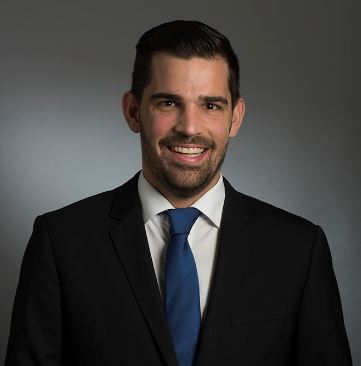
Marco Salvisberg
GF Casting Solutions, CH
Transforming the supply chain of metal components for industrial gas turbines through the new possibilities of additive manufacturing
The world of manufacturing technology is changing rapidly, and GF Casting Solutions, one of the world’s leading suppliers of cast components for the automotive, aerospace and power generation industries, is responding to this challenge by offering its customers solutions that can react faster and more flexibly to constantly changing market conditions, than would have been possible in the past. In general, developments have to be successfully completed much faster, and components are no longer purchased from stock but ordered directly from the supplier on demand.
This keynote will show how additive manufacturing has changed and will continue to change the supply chain for nickel-based alloy components for the energy sector. Thanks to the possibilities of additive manufacturing, components can be developed faster, functions can be integrated and total cost of ownership can be drastically reduced. Thanks to the improved process stability compared to traditional manufacturing methods, even more precise components can be produced, which leads to a reduction in post-processes such as machining. A major task still to be solved is the surface roughness of components. Particularly in the down skin areas or where supports are required, the surface quality is far from reaching the surface tolerances known from precision casting.
In addition to the challenge regarding surface roughness , there is still a lot of untapped potential to make the AM process and especially the downstream processes leaner and more cost effective, in order to be able to substitute even more components that are still produced with traditional manufacturing methods.
To tap this potential, the industry needs the support of research and development to jointly find solutions for the existing challenges, so that additive manufacturing can become an established standard manufacturing process.
Biography
Marco Salvisberg is the additive manufacturing business development manager for GF Casting Solutions, a foundry group with over 200 years of history, producing metal components for automotive, aerospace, power generation and many other markets. Marco has been responsible for sales and business development of additively manufactured parts since GF Casting Solutions became a service provider almost 5 years ago.
Marco has a broad experience with a strong record of accomplishment in precision- and sandcasting for the aerospace and industrial gas turbine market. Together with his team, he now uses this knowledge, to offer customers holistic additive manufacturing solutions from a fully certified internal supply chain.
He holds a Bachelor of Science FHNW in Engineering and Management, Economics/Engineering from the University of Applied Sciences Northwestern Switzerland.
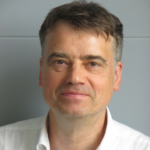
Martin Schäfer
Siemens AG, DE
Evaluation of hybrid AM technology chains considering the process accuracies for integration into industrial production
To integrate additive manufacturing (AM) into industrial production and to expand its range of application, the linking of these still new manufacturing processes with conventional technologies is necessary and is one of the important key developments, along with other developments such as “adaptive design”, to make additive manufacturing processes usable for large parts of the industrial sectors.
The presentation shows the planning of hybrid process chains and which requirements exists and still must be solved.
It is necessary to combine the different processes with each other in a sensible way and to adapt each other if needed. The underlying characteristic of AM processes, that basic materials are changed during the manufacturing of the products, requires a special approach for the production integration of these technologies besides the persisting challenges of anisotropy or the reproducibility of the processes.
“Coordination” is an essential part of hybrid manufacturing, especially regarding geometric alignment and material transitions. Accuracy and alignment aspects in particular must be taken into account here. Possibilities and challenges are highlighted.
Furthermore, there is a need to plan and evaluate technology chains. This also requires a broad technology knowledge and corresponding databases. There is still a lot of groundwork to be done here. However, this planning is one of the building blocks to successfully implement the major future targets of the society such as resilient production or the circular economy.
The merging of technologies requires knowledge of the technical possibilities of the various AM processes, whose part sizes range from the sub-millimeter to the meter with accuracies from micrometers to millimeters (stereo lithography and 2-photon polymerization; “concrete extrusion”). Using these possibilities and combining them with traditional processes to form process chains is one of the working areas of hybrid manufacturing. With adapted interface execution it is possible to use the advantages of the different processes and to optimize the production in terms of product designs and material properties.
Examples from Siemens production will illustrate the potential of AM technologies.
Biography
Senior Key Expert Additive Manufacturing at the Research and Development Department of Siemens AG; Studies at the Technical University of Berlin “Technical Environmental Protection”; Diploma thesis: “Basic investigations on the recovery of copper from electroplating wastewater by means of liquid-liquid extraction”.
Since 1995 research engineer at Siemens AG: research work in the field of cleaning processes and material recycling.
From 2000 to 2014 responsible for the area of rapid prototyping resp. additive manufacturing with a focus on the development of AM processes and materials; e.g. stereolithography here especially “ceramic filled SL resins for the production of ceramic high-performance components such as casting cores in turbine construction”; as well as the powder-based laser melting process in the area of nickel-based high-temperature alloys; process integration of additive manufacturing into industrial production processes;
Since 2014 Key Expert Engineer “Additive Manufacturing”; Tasks: Development of strategic AM production concepts and projects as well as coordination of research projects in the AM field; Development of AM quality management especially on standardization and qualification of AM process and materials.
Since 2006 Chairman of the “European AM platform”.
Since 2010 Chairman of the DIN working committee “Additive Manfacturing” and “Chairman of the German mirror committee of the CEN/TC 438 Additive Manufacturing.
Since March 2021 Chairman of NA 145 DIN Standardization Committee on Materials Technology (NWT).
State-of-the-art reviews (SOTA):
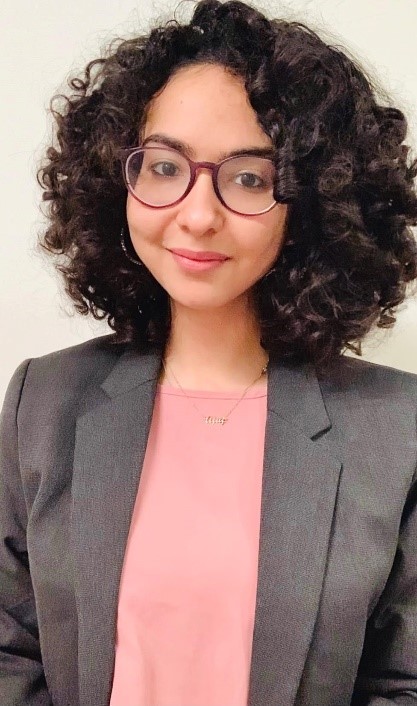
Afaf Remani
University of Nottingham, UK
In-process measurement methods for defect identification in metal powder bed fusion
The possibility of using a variety of sensor signals acquired during metal powder bed fusion processes, to support part and process qualification, has been constantly attracting a great interest. The number of research studies in this field has been characterised by significant growth in the last few years, with several advances and new solutions compared with initial studies. Moreover, industrial powder bed fusion systems are increasingly equipped with sensors and toolkits for data collection, visualisation and, in some cases, embedded in-process analysis. Many new methods have been proposed and defect detection capabilities have been demonstrated. Nevertheless, several challenges and open issues still need to be tackled to bridge the gap between methods proposed in the literature and actual industrial implementation. We present a state-of-the-art of in-situ sensing, measurement, and monitoring for metal powder bed fusion processes, with a classification of the defects that are practically detectable while the part is being produced. The research areas where additional technological advances are currently needed will also be highlighted.
Biography
Afaf Remani is currently pursuing a PhD in Manufacturing Engineering at the University of Nottingham, focusing on the design and development of measurement techniques for in situ monitoring and defect detection in additively manufactured metal parts. Her project is supported by Renishaw plc and is an on-going partnership between the University of Nottingham and Imperial College London. Prior to her PhD, Afaf completed an MSc in Mechanical Engineering, with a specialisation in Manufacturing, at the University of Nottingham and a BSc in General Engineering at Al Akhawayn University (Morocco). She has a solid background in dynamics and mechanics of materials and is a part-time supervisor of undergraduate mechanical engineering laboratories alongside her PhD. Afaf is a collegiate member in the Society of Women Engineers and took part in research and development projects in the United States and Portugal. She co-authored two review papers about in-situ monitoring and defect detection in additive manufacturing, among which one is a high-impact comprehensive review.
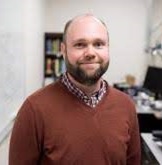
Assoc. Prof. Michael A. Cullinan
University of Texas at Austin, US
A review of the state-of-the-art and precision engineering challenges in micro/nanoscale additive manufacturing
Microscale additive manufacturing is one of the fastest growing areas of research within the additive manufacturing community. However, there are still significant challenges that exist in terms of available materials, resolution, throughput, and ability to fabricate true three-dimensional geometries. These challenges render commercialization of currently available microscale additive manufacturing processes difficult. This talk will review the current state-of-the-art of microscale additive manufacturing technologies and investigate the factors that currently limit each microscale additive manufacturing technology in terms of materials, resolution, throughput, and ability to fabricate complex geometries. This talk will offer prognosis about the future viability and applications of each technology along with suggested future research directions that could be used to bring each process technology in line with its fundamental, physics-based limitations. This talk will also bring together the general design guidelines that must be followed while designing scalable microscale AM processes. Finally, this talk will conclude with an analysis of the role of precision engineering in the future advancement of microscale additive manufacturing technologies.
Biography
Dr. Cullinan is an Associate Professor in the Walker Department of Mechanical Engineering The University of Texas at Austin. Prior to joining The University of Texas, Dr. Cullinan was a National Research Council Postdoctoral Associate at the National Institute of Standards and Technology in Gaithersburg, Maryland. Dr. Cullinan received his Ph.D. in Mechanical Engineering from the Massachusetts Institute of Technology (MIT) in 2011. Dr. Cullinan also holds an MS (2008) in Mechanical Engineering from MIT as well as a BS in Engineering and a BA in Economics from Swarthmore College (2006). Dr. Cullinan’s research focuses on the development of novel nanomanufacturing systems and on finding ways to exploit nanoscale physical phenomena in order to improve existing macroscale devices and to create novel micro- and nanoscale devices for energy and sensing applications. Dr. Cullinan has received many awards for his research and teaching including the Outstanding Young Manufacturing Engineer Award from the Society of Manufacturing Engineers (2016), the Rising Star Award from the Sensors Expo and conference (2017), multiple Best Poster Awards from the American Society for Precision Engineering (2017, 2018), and the Outstanding Teaching by an Assistant Professor Award from the Department of Mechanical Engineering at The University of Texas at Austin (2017). Dr. Cullinan is also an associate editor for both Precision Engineering and the ASME Journal of Micro and Nanomanufacturing. In addition, he is also the co-chair of the Micro and Nanotechnology Technical Leadership Committee for the American Society for Precision Engineering.
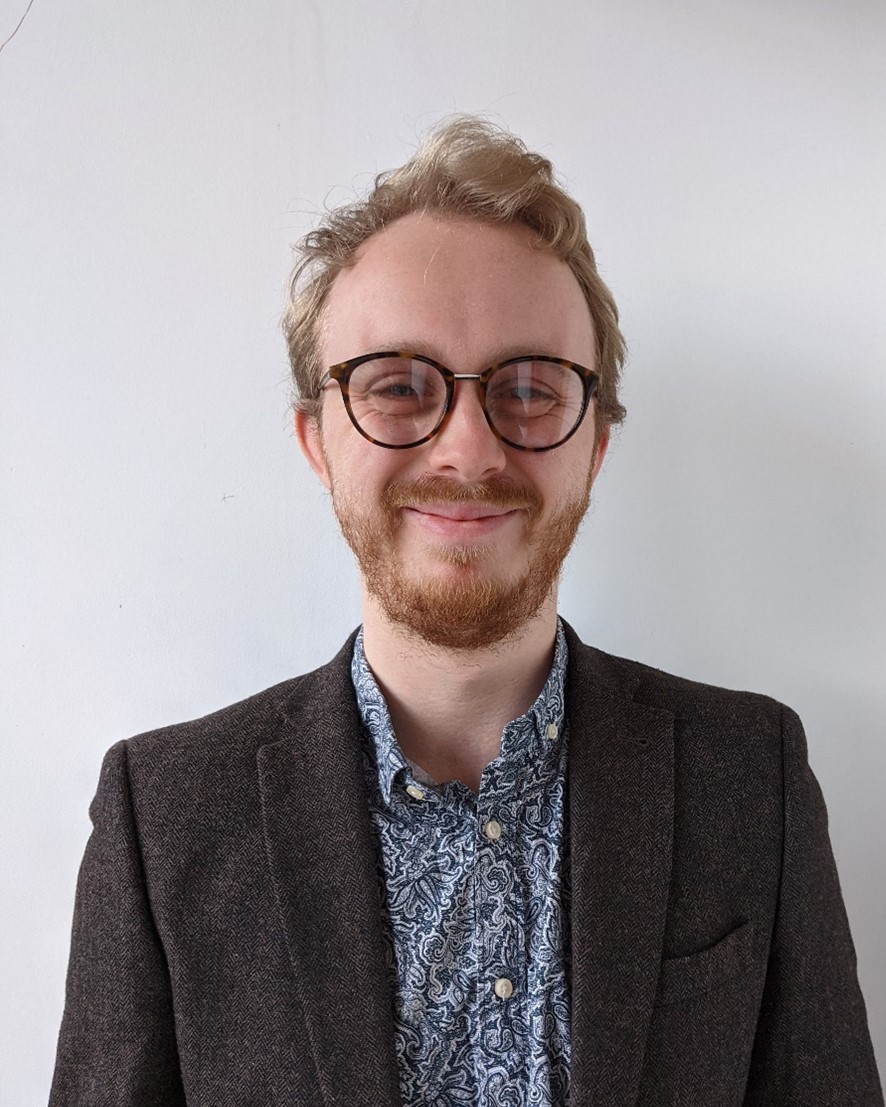
Joe Eastwood
University of Nottingham, UK
Machine learning for precision engineering
Advances in high performance computing combined with access to rich and massive datasets have led to a revolution in machine intelligence. The growing ubiquity of machine learning across all sectors presents many opportunities, and the precision engineering world has not been slow in leveraging this new tool. While initially confined to the world of academia, the technologies have matured enough to be seen in many industrial settings. From post-process surface metrology, to in-situ monitoring and process control – machine learning is now contributing to many applications at the cutting edge of our field. This talk will cover, at a high level, the current state of the art in machine learning as it applies to precision engineering.
Biography
Joe Eastwood is a research engineer in the Manufacturing Metrology Team at the University of Nottingham. His work focusses on the applications of machine learning to optical metrology: thus far this has included projects on six degree-of-freedom pose estimation, automated view planning and the simulation of additively manufactured surfaces using generative adversarial networks.


